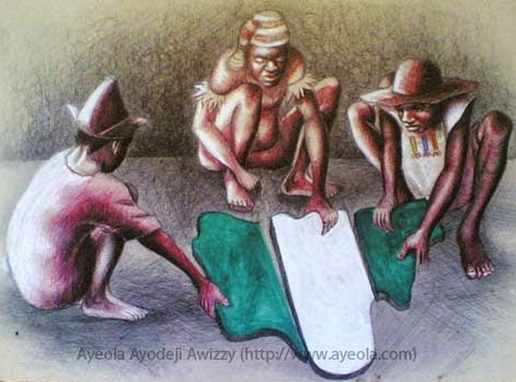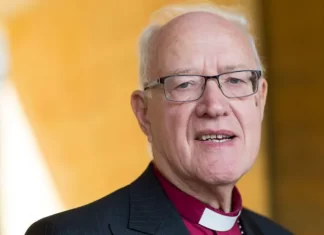The Hausa, the Igbo, and the Yoruba form the tripod on which the Nigerian nation stands. They are also referred to as the majority ethnic groups. Other ethnic nationalities are called the minorities. For the fact that people from a particular ethnic nationality share cultural similarities and even common ancestry, their developmental needs and challenges are usually similar. The division of Nigeria into regions, zones, states, local governments and autonomous communities has had very little effect on the known characteristics of people from a particular ethnic nationality.
So, the Yoruba found in Kogi or Kwara will not dispense with the core Yoruba way of dressing, greeting or marriage. The Igbo are in Rivers and Delta states. They remain Ndigbo in body and soul.
Notwithstanding that unfortunately each region or zone looks askance at others, the reason for splitting the country into smaller entities is to encourage development and enable the people to know their leaders at close quarters. When Nigeria practised a more semblance of federalism, each region was proud of at least one agricultural produce that was her mainstay. The resources from the produce were used to cater for the peculiar needs of her people. This meant that competition for development was several, not joint.
It is regrettable, however, that Ndigbo have not fared well since the collapse of regional governance, and they point to the past as their best period of selfless leaders.
It is not in doubt that talking about potential, no ethnic nationality can match Ndigbo. What then is the problem? Or is there no problem? In my very humble opinion, it will be asinine to imagine that all is well. An effort will be made here to situate the problem. Ndigbo are believed to be republican. They are independent-minded. They are industrious. Many of them, especially the so-called today’s leaders, are stone-hearted, and engage in the most primitive form of kleptomania.
Some people argue that Ndigbo are not the most backward in Nigeria. Away with that patronage! Considering the devastation of the civil war, are Ndigbo not supposed to confront development like a house on fire? Has that been the case? Can anyone point at any industry established in the South East in the last 40 years by successive governments of the zone? Those established by our hero-leaders like the late Michael Okpara have been allowed to die. The zone has produced governors who only existed on billboards for eight years, sponsoring kidnapping and muzzling opposition. Some made anticipatory declaration of assets, so their stealing was to meet some already-declared figures and values.
Assuming the allegation of conspiracy by the government at the centre against the development of the zone is true, does that sound the death-knell if there is a desire to achieve? As the zone with the least number of states, what has been the political bait-and-switch of Ndigbo? Politically not as astute as some other zones and lacking in recognisable leadership, the other zones have always capitalised on these clear short-comings to do a hit-and-run on Ndigbo.
The talk of political marginalisation is neither here nor there? Is there any political office of relevance that has not been occupied by Ndigbo? From the late Nnamdi Azikiwe as Governor-General and President to the late General Johnson Aguiyi-Ironsi as military head of state, to Alex Ekwueme as Vice President, to several senate presidents, to Chief Edwin Ume-Ezeoke as House of Representatives Speaker to Lt-Gen Azubuike Ihejirika as Chief of Army Staff, just to name a few. The issue should be how they fared as occupants of these positions.
The All Progressives Congress (APC) government has been fair to Ndigbo in the allocation of ministries to our sons. Knowing that we are technology-friendly, Buhari appointed Ogbonnaya Onu as the Minister of Science and Technology. We are industrialists and traders, and Okechukwu Enelama is in charge of Trade and Industry. We have always complained that employment into the federal civil service is skewed against us and Dr. Chris Ngige is at the helm of the ministry of Labour and Employment. To allow our cry of marginalisation get world attention, Geoffrey Onyeama is Minister of Foreign Affairs. What else do we want? The credentials of these our sons may be intimidating, but have they gone “abroad” to serve, knowing the “situation at home”?
It is disturbing that instead of calling the self-appointed leaders of Movement for the Actualisation of the Sovereign State of Biafra (MASSOB) and Indigenous People of Biafra (IPOB) to order, the elders are watching this egregious breach of conduct. For an ethnic group in dire need of growth and development, these amorphous groups shut down markets and roads and coerce people to show support for what they do not understand. A few individuals get richer by the day, while the security agencies prey on the sheep-like followers and supporters.
Ndigbo must accept that they are the architects of their arrested development. Chieftaincy titles appeal more to the average man from the South East than good roads, potable water, and electric power.
It was a collection of these fellows that went to the Oba of Lagos last year, claiming to represent Ndigbo. What transpired there and the aftermath has been in public domain since then.
Like all mortals, Ndigbo have all sinned and come short of our collective expectations. The way forward is to put away our idiosyncrasies and at least, for once, pull together as a TEAM (Together Each Achieves More). But we need a leader, a respected figure, a fair and firm person, an intelligent man, a wise man, an exposed man, an altruistic man, a fulfilled man. My humble suggestion is that we send Alex Ekwueme and Bishop Anthony Obinna of Owerri Catholic Archdiocese to go on our behalf and persuade Commodore Ebitu Ukiwe (rtd) to become the undisputed leader of the new Igbo nation.
As Chief of General Staff during the burgeoning years of the Ibrahim Babangida regime, Ukiwe discharged his duties in a stand-out manner and has since kept his cool. Let him be our chief negotiator, our Jagaban, our template for responsible leadership and moral behaviour. The chance to be great again is beckoning. The time for action is now. Procrastination is the thief of …destiny, in this case.

- Advertisement -
- Advertisement -
Must Read
Former Archbishop of Canterbury Carey quits priesthood
Former Archbishop of Canterbury George Carey has resigned his priesthood.
By Emma Ogbuehi (With Agency Reports)












